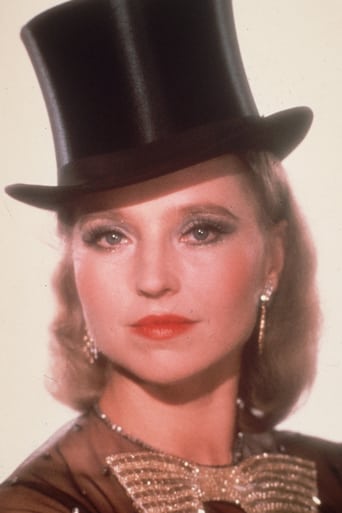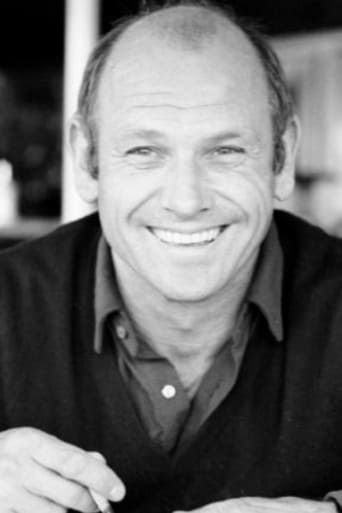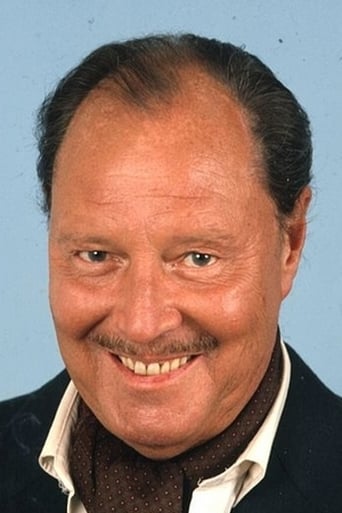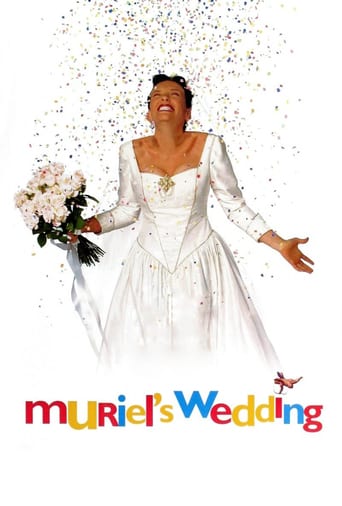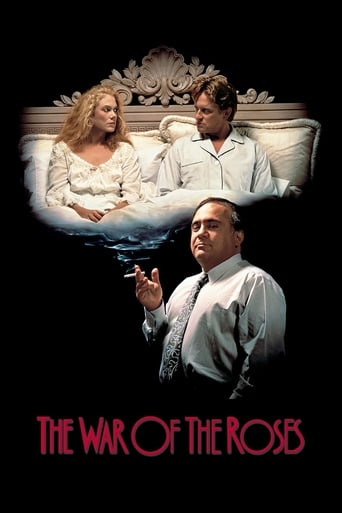
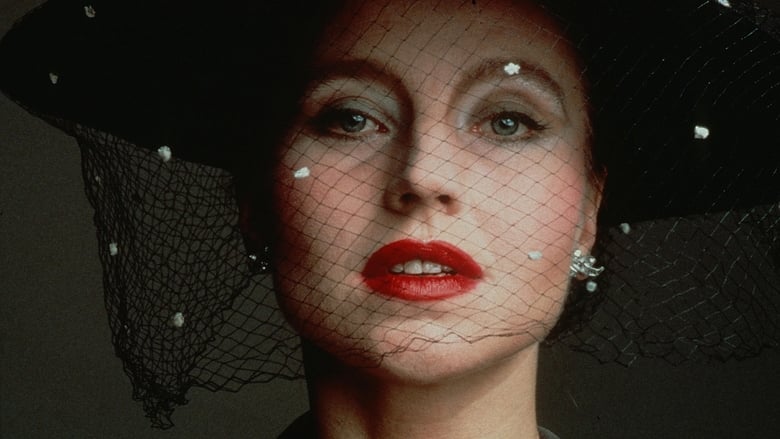
The Marriage of Maria Braun (1979)
Maria marries a young soldier in the last days of World War II, only for him to go missing in the war. She must rely on her beauty and ambition to navigate the difficult post-war years alone.
Watch Trailer
Cast
Similar titles


Reviews
How sad is this?
a film so unique, intoxicating and bizarre that it not only demands another viewing, but is also forgivable as a satirical comedy where the jokes eventually take the back seat.
Exactly the movie you think it is, but not the movie you want it to be.
The movie's neither hopeful in contrived ways, nor hopeless in different contrived ways. Somehow it manages to be wonderful
Maria Braun is an extraordinary woman presented fully and very credibly, despite being so obtuse as to border on implausibility. She will do everything to make her marriage work, including shameless opportunism and sexual manipulation. And thus beneath the vicey exterior, she reveals a rather sweet value system. The film suffers from an abrupt and unexpected ending which afterwards feels wholly inadequate, with the convenience familiar from ending your school creative writing exercise with 'and then I woke up'. It is also book-ended at the other end with the most eccentric title sequence I've ever seen, but don't let any of that put you off.
Sporadically this does demonstrate masterful dialog and especially finely crafted direction from the distinguished German filmmaker, but summing it's entirety as a masterpiece feels way overpraised. There seems to be almost as much dead weight being carried around in The Marriage of Maria Braun as there is subtle grace.Thankfully to aid Fassbinder's articulate work is lead (and apparent muse) Hanna Schygulla. Her transformation, however underhanded in pace, is entertaining to behold and probably one of the stronger female performances of the time. She exudes a sensuality better suited for long pauses then line recitals, but overall does an admirable job through and through.Purists may revel in it's technical pronunciations and metaphoric finesse, but a certain emotional detachment lingers the entire time- contrary to what the script would imply. Don't let the typical European surprise shock ending and over-theorized allegorical conjecture fool you into calling this a masterpiece, it is still just a reasonably well made journey into the female psyche of post-war Germany.
The Marriage of Maria Braun (MMB) is about a German girl (Maria) getting married to a German soldier (Herman Braun) just at the ending of the war. After being married for half a day and a night, Herman is send to the front again. To make ends meet, Maria starts working at a bar for mainly American soldiers and get to know a black soldier. She got word that Herman died at the front, and things develop between her and the American soldier. Herman walks in on them, in bed, and after a confrontation between him and the American, Maria killed the American. Herman admits to the murder, ends up in jail and Maria vows to wait for him. The country is in shambles; one sees people leaving everything that they are busy with for a cigarette. There are food shortages. It is in short, a time of survival of the fittest. Basically this film projects Maria's attitudes - those attitudes she permits herself under the mentioned circumstances, as a metaphor for Germany's loss of soul after they lost the war, and how it proceeds to rebuild itself. For example, Maria has the following conversation with a peddler (played by Fassbinder himself); the peddler tries to sell her an excellent copy of Kleist and she remarks that "Kleist burns out to quickly, it does not provide enough heat for the cold". The peddler answers "That's another way to look at it. Right now, it's probably the correct way". Maria meets a French/German business man, Karl Oswald after she bargains her way into the first class train compartment. She decides to get involve with Karl, "You're not having an affair with me; I'm having an affair with you". She also takes responsibility in the company, and after a while has the complete trust of the firm. When Karl says "I suppose we'll just have to wait for a miracle" she replies "I prefer making miracles then wait for them". In her own words, she has become the "Mata Hari of the economic miracle".In a lot of Fassbinder's films he tried to expose the psychological processes which lie behind social mechanisms (see Freud); in other words, he liked pointing his camera at the bullsh*t, the false social mechanisms, the pretending. The direct approach Maria takes in this film is successful to convey this ideology. For example, she phones Karl and when he picks up the phone her request is straight to the point "I need someone to sleep with". As Fassbinder said "the emotions people felt did not exist at all and were only a kind of sentimentality which we thought we needed to be properly functioning members of society". He also remarked that his films are anti emotional. I particularly liked the scene when Karl and Maria meet in the Munich restaurant (apparently, frequently visited by Hitler himself). Maria appears in control and Karl a bit on the down side, as if Maria's 'brutal honesty' wears him out, as if he is not completely up to the situation anymore. Karl says "I have to tell myself over and over that I love life". Maria replies "That's life isn't it. As if we signed a contract to enjoy life. And then we go out to eat and talk about food". I guess this is also about Fassbinder attitudes on relationships, to never submit completely to anyone. And why would you, if the central matter of most of his films is about "What love becomes in this society a commodity, an instrument of power, a weapon."It was remarked that it is typical Fassbinder to have the scenes with Maria and Betti walking in expensive dresses in the ruins after the war - with these clothing essentially the wrong period. What I think he wanted to portray here were those attitudes, when you feel bad, that "you can always put on your make up and face the day looking great". But, Fassbinder was not interested in perfection. Any mistakes made in a film could just be corrected in the next project. Since he completed films (approximately 4 a year) the way other people rolled cigarettes, it is not peculiar that this film has some very bad scenes. Peter Marthesheimer, who wrote most of the script, mentioned that Fassbinder likely dreamed up the whole scene with Maria and the American in the park, overnight. Hanna Schygulla is brilliant as Maria. Mostly, she just stares bluntly into the camera. In Maria's own words "It is a bad time for emotions. But, I like it like that". There are different opinions about the end. After Karl died of a hart attack, Herman finally shows up. (Herman left for Australia after he got out of prison, to "become human again".) After the testament is delivered (made out to her and Herman in half), Maria forgets to close the gas on the stove when she lights her cigarette, and blow her and Herman up. For me it is obvious that she just did that by accident. At the same time, she must have been rattled when her dreams finally seem about to come true. She must have felt as if she was not herself anymore. She felt as if she had outlived herself.
This film exhibits artful cinematic techniques wherein instead of landscape capturing the attention of the camera it is small details in how someone appears, how the woman may be wearing a cocktail hat and wrapped in a sheet. How the husband may be wearing a hat and socks and shoes and his underwear and both seem so completely at ease and comfortable. How provocative the woman is posed is another feature of the tableau that the director chooses to let us know she is a free spirit sexually and aims to get the pleasure she seeks without flirting directly or with any particular sensitivity to what the man may be feeling. The relationship between the wife and husband is unique. It is an open one wherein she holds nothing back, feels no particular shame for how she has behaved and wants to share these facts with him because her primary focus always is on the fact of their marriage. Nothing and no one can come between the two of them. Only the chances of fate can intervene---his imprisonment during the war and what follows after his return at long last. A very intriguing film which is totally absorbing.
